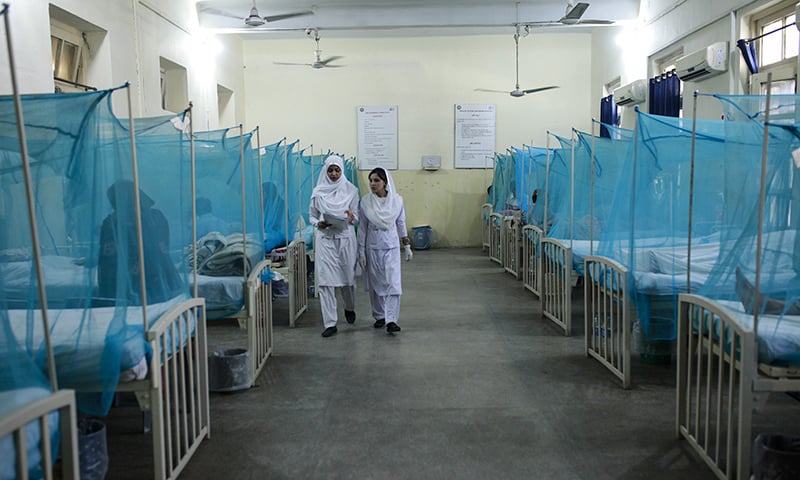It is early in the morning, but already, there is a sense of chaos at the Benazir Bhutto Hospital in Rawalpindi. With dengue fever spreading, the hospital has set up a counter to facilitate incoming patients suffering from this dangerous and – if left untreated or misdiagnosed – potentially fatal disease.
Patients referred for dengue tests here are first registered at this desk. From there, they move to a nursing station where their blood pressure is checked. Next comes a trip to the hospital’s laboratory for a complete blood count (CBC) test. The lab is hot and crowded; there is only room for four people, including the nurse and the lab technician.

Patients then take their tests to the next room where a doctor determines if they need to be admitted. If the doctor deems it necessary, patients must make their way to the admissions desk where they are allocated a bed in the increasingly crowded dengue ward.

Almost 100 patients are taken in every day and the hospital has allocated 172 beds for dengue patients. Outside the ward, new patients argue with the nursing staff when they are told the hospital has run out of beds. These patients are referred to the District Headquarters Hospital.

There are patients here of all ages, ranging from a three-month-old baby to the elderly in their 70s. The hospital staff is obviously trying their best to satisfy each patient and their families.

Many of the patients awaiting treatment displayed a limited knowledge of dengue fever and did not seem to know how they could protect themselves. Some of those who knew better were too poor to afford preventive measures.


Many wait until the very last minute to seek medical attention, often because they are poor and cannot afford to be away from their work. But as time passes and loved ones get sicker, they are left with no other choice.
Published in Dawn, October 18th, 2015
On a mobile phone? Get the Dawn Mobile App: Apple Store | Google Play














































